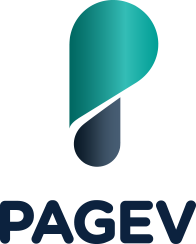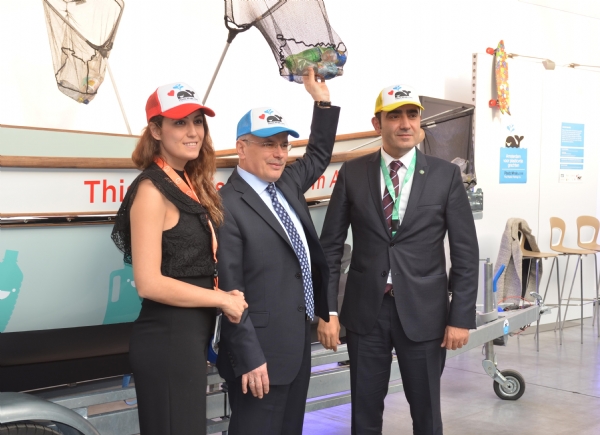 ALLIANCE FOR “ZERO PLASTICS TO THE OCEANS”
ALLIANCE FOR “ZERO PLASTICS TO THE OCEANS”
Turkey will direct cleaning marine litter from European seas
Countries from all over the world came together at PolyTalk 2016 under the theme “Zero Plastics to the Oceans” to discuss the marine pollution increasing day after day. Held on 16-17 March 2016, the conference themed “Zero Plastics to the Oceans” was arranged by the host PlasticsEurope and its Turkish peer PAGEV. The Deputy Minister of Environment and Urbanization Mesut Ceylan and the Chairman of the Executive Board of PAGEV Yavuz Eroğlu appeared in the conference to deliver speeches on the efforts for coastal cleanup in Turkey and the other countries.
All the seas and oceans of the world have been in danger because of pollution for decades. Today, our seas and oceans are polluted with approximately 142 million tons of litter, which is 20 kg waste per capita. 10 million tons waste is added to this pollution every year; eighty percent of this marine pollution is land-based. Seventy percent of the waste sinks to the bottom while fifteen percent comes ashore and the rest floats on the seas. Conducted researches show that marine litter travel from one coast/country to the other with sea waves. Therefore, this is not much of a problem that countries can handle individually. We need international collaboration to solve this.
And plastics are one of the most common waste types... The European Union closely follows this global issue, and works with environmental organizations and industrial actors to reach a relief. As part of this collaboration, “Zero Plastics to the Oceans” was included in the PolyTalk 2016 Conference among other topics to discuss. Held at Brussels on 16-17 March, the authorities from the European Union and Turkey came together at this conference to define the steps to be taken for a global coastal de-pollution.
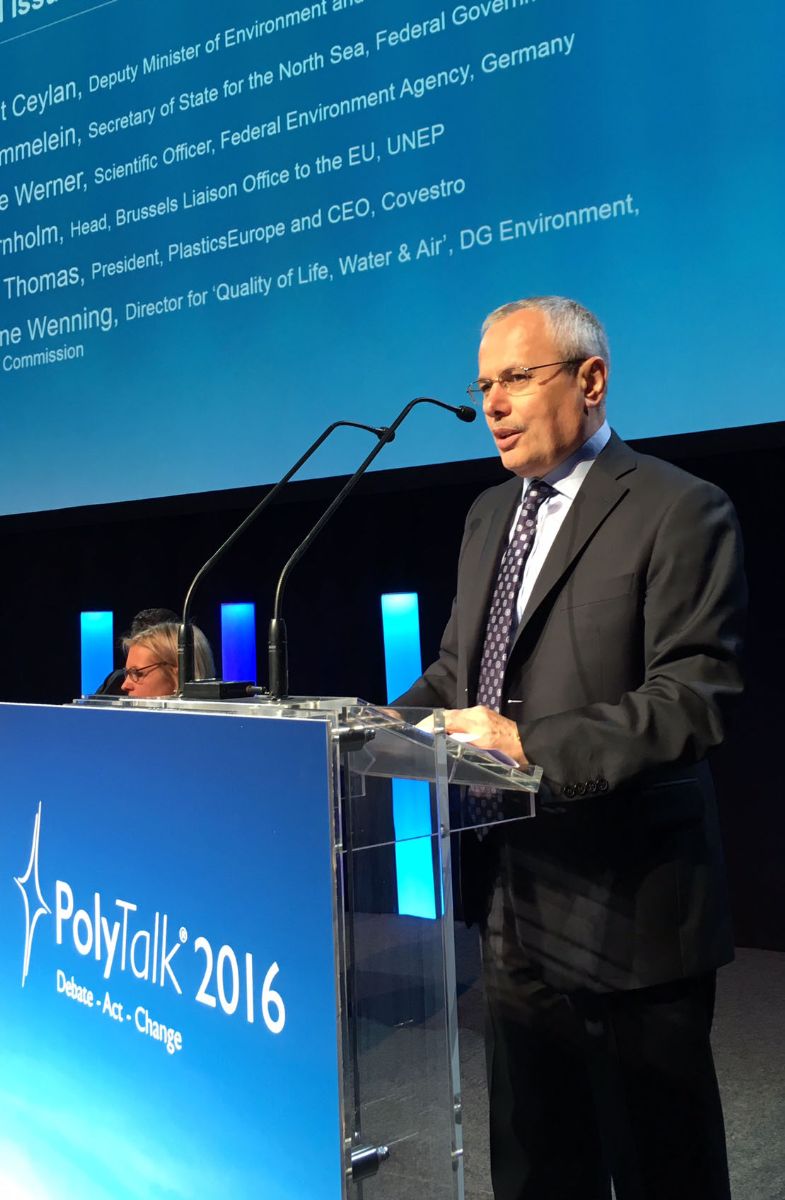
The Deputy Minister of Environment and Urbanization Mesut Ceylan delivered his speech at the “High Level Panel Debate on Regional Issues & Solutions” on the conference day 1. PAGEV’s special guest the Deputy Minister Ceylan said “Marine litter is swiftly spreading around by means of waves and streams. This problem can only be solved with international collaboration. Turkey supports international alliances and national projects such as “Mutlu Balıklar” (Happy Fishes, translation for WFO) carried out by NGOs like PAGEV. We are working on to avoid pollution before happening. We prepared the Marine Litters Action Plan for Istanbul to effectively deal with the marine litter issue. Marine litters action plans for all other coastal cities are expected to be prepared by 2017. We will do whatever it takes” during his speech.
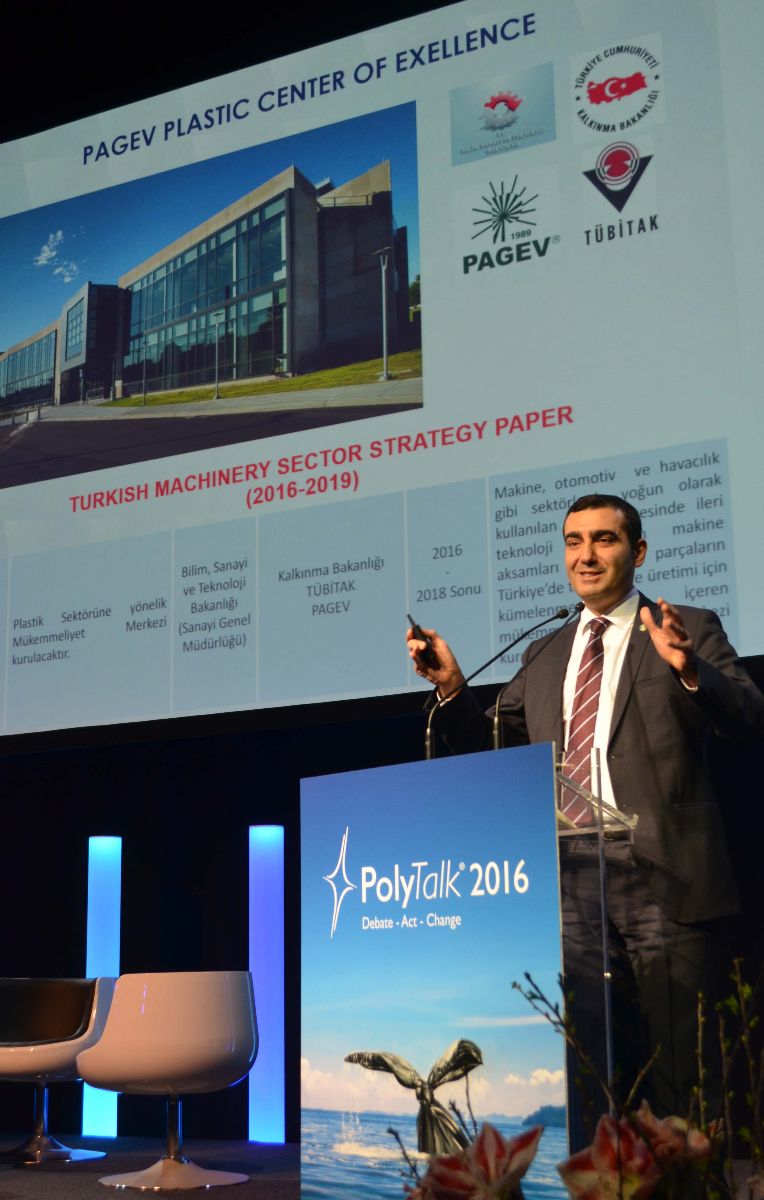
The Chairman of the Executive Board of the Turkish Plastics Foundation –the umbrella organization of the industry and a member to the PlasticsEurope– Yavuz Eroğlu gave a speech on the second day of the conference, explaining what PAGÇEV has done so far for the sake of coastal cleanliness in parallel with the “Responsible Industry, Problem-Free Environment” mission.
Stating that marine litter problem has gone rampage, the President of PAGEV Yavuz Eroğlu continued his words: “As a country surrounded on three sides by the sea, we are more vulnerable to other countries’ wastes. Therefore, we believe that we have to be even more sensitive compared to other countries. As a matter of fact, every country has to do more than cleaning is coasts. 53 percent of Turkey’s marine litter comes from other countries. To give an example, wastes released to the seas from landfills on Saida coast of Lebanon pollute our Mediterranean coasts, wastes from Latakia/Syria pollute the Samandağ coastline in Hatay, and wastes that came through the Danube River endanger the Black Sea. People think that the wastes dumped into the seas will just disappear. However, most of the wastes are broken into small pieces by sun and waves, and fish eat those waste particles, and in the end, we eat those fish. We are endangering not only the environment but also ourselves”.
Yavuz Eroğlu said “Not sorting our household waste and sending them to dump sites instead of recycling pollute our seas more than the litters directly thrown into the seas. Moreover, these dump sites are mostly by the seas. Wastes are carried to the seas by waves, floods, winds, sewage, rivers and underground waters. Scientific studies show that more than 70 percent of the marine litters, including plastic wastes, are land-based” to mention his concerns on the inefficient waste management systems.
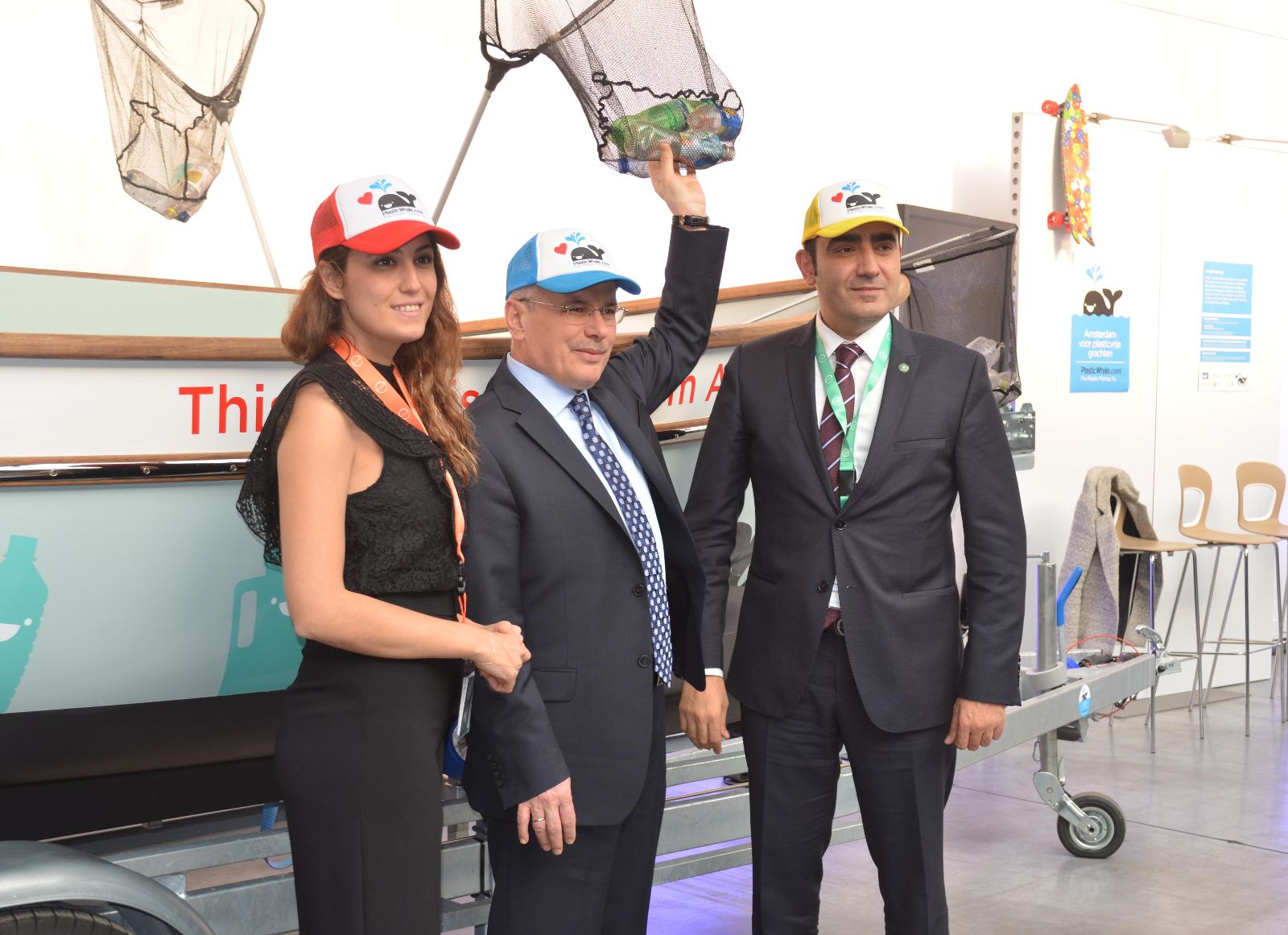
President of PAGEV Eroğlu continued his words: “The truest way of clean oceans and a sustainable environment is to practice a good waste management system and recycle high-calorie wastes. We have to rehabilitate or shut down landfill sites, and move them away from the seas, accordingly, as a major step. Even this is not enough; consumers have a lot to do in terms of waste management and recycling. They have to sort wastes at the source. Local administrations have to collect the already sorted wastes with caution to start the recycling process, which is the optimal solution. We have to collaborate with the local administrations as soon as possible to forge ahead to an integrated waste management.”
Pointing out their efforts as part of the “Responsible Industry, Problem-Free Environment” mission regarding the marine litter problem as PAGEV, the umbrella organization of the industry, Eroğlu added: “One of the most significant steps we took towards waste-free oceans was the project we began in 2012 during my Presidency of WFO Turkey, Middle East and Africa in addition to my Presidency of PAGEV to keep seas of 69 countries clean. We adopted the Waste Free Oceans project –which was started in Europe and spread to the world in a short time for clean seas– into Turkey as ‘Mutlu Balıklar’ (Happy Fishes). As the first step, we held an event during the annual fishing ban to collect plastic and other packaging wastes from the sea surface near the Prince Island of Büyükada with a special net that does not harm fish. We took the second step at the Bosphorus. As part of the ‘Mutlu Balıklar’ project, we are encouraging an approach that we call ‘waste fishing’ to clean up the sea surface. We are collecting all packaging wastes, not just plastics. Then as the foundation authorized for recycling operations in Turkey, PAGÇEV performs the recycling operations. We are also collaborating with PAGÇEV to give trainings at schools to raise consciousness on sorting wastes at the source. As the plastics industry, we are trying to do the best we can to achieve a clean and sustainable environment. With this project, we are expecting to be a model for other industries on recycling while cleaning our seas.”
Secretary of the Federal State of Belgium Bart Tommelein stated during his speech that they have been working on to avoid marine litters and announced that they are going to clean the coasts of the North Sea.
“Plastisc industry has taken some specific steps to relieve our concerns” said the Deputy for Environment Marianne Wenning and added: “We need to accelerate and enhance these steps. We may improve our collaboration, especially with the circular economy suite.”
Explaining that the collaboration has to match with the problem in size, CEO of Ellen MacArthur Foundation Andrew Morlet stated that this problem might also bring big opportunities for the new plastics economy.
